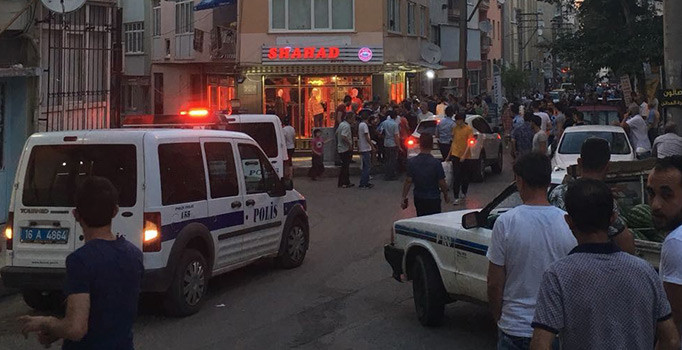

Clashes reportedly erupted between local residents and Syrians in Bursa’s commercial district on Thursday night.
Police forces intervened to disperse the crowds gathered in the market after stores were attacked with rocks following an alleged fight between Syrian and Turkish residents.
According to local media, residents attacked Syrian-owned shops and houses in the commercial district and shouted slogans against Syrians.
(Source: Ruptly)







